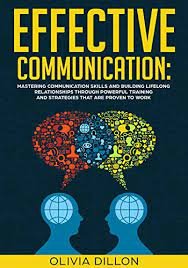Effective communication is the cornerstone of healthy and fulfilling relationships. It goes beyond mere exchange of words; it involves active listening, empathy, and clarity. By mastering the art of communication, individuals can establish stronger connections, resolve conflicts, and foster deeper understanding in their relationships.
One of the fundamental pillars of effective communication is active listening. This technique involves giving undivided attention to the speaker, maintaining eye contact, and responding appropriately. By actively listening, you demonstrate your genuine interest in the conversation, which fosters trust and openness. It also allows you to grasp the speaker’s message accurately, leading to more meaningful and constructive responses.
Empathy is the ability to understand and share the feelings of another person. By putting yourself in the other person’s shoes, you can gain a deeper understanding of their perspective and experiences. Demonstrating empathy in communication involves acknowledging their emotions, validating their concerns, and responding with compassion. This approach promotes a safe and supportive environment, nurturing stronger bonds in relationships.
Clear and concise communication is essential for avoiding misunderstandings and confusion. Be mindful of your choice of words, tone, and non-verbal cues to ensure your message is conveyed accurately. Express yourself openly, honestly, and respectfully, allowing your thoughts and feelings to be heard. Creating an atmosphere of open communication encourages others to reciprocate, building trust and enhancing the quality of relationships.
Communication is not limited to words alone; non-verbal cues such as body language, facial expressions, and gestures play a significant role. Pay attention to your own non-verbal communication, ensuring it aligns with your intended message. Additionally, be observant of the other person’s non-verbal cues to better understand their emotions and intentions. Being mindful of non-verbal communication can enhance the overall effectiveness of your communication efforts.
Conflicts are inevitable in any relationship, but effective communication can help resolve them constructively. When conflicts arise, actively listen to the other person’s perspective without interrupting or getting defensive. Use “I” statements to express your thoughts and emotions instead of blaming or attacking the other person. Seek a middle ground and be open to compromise, focusing on finding solutions rather than escalating the conflict. By approaching conflicts with effective communication techniques, relationships can grow stronger through shared problem-solving.
Mastering the art of communication is an ongoing process that requires practice, patience, and self-awareness. By actively listening, showing empathy, communicating with clarity and openness, being mindful of non-verbal cues, and resolving conflicts constructively, individuals can foster healthier and more fulfilling relationships. Through effective communication, connections can deepen, trust can flourish, and understanding can thrive.


